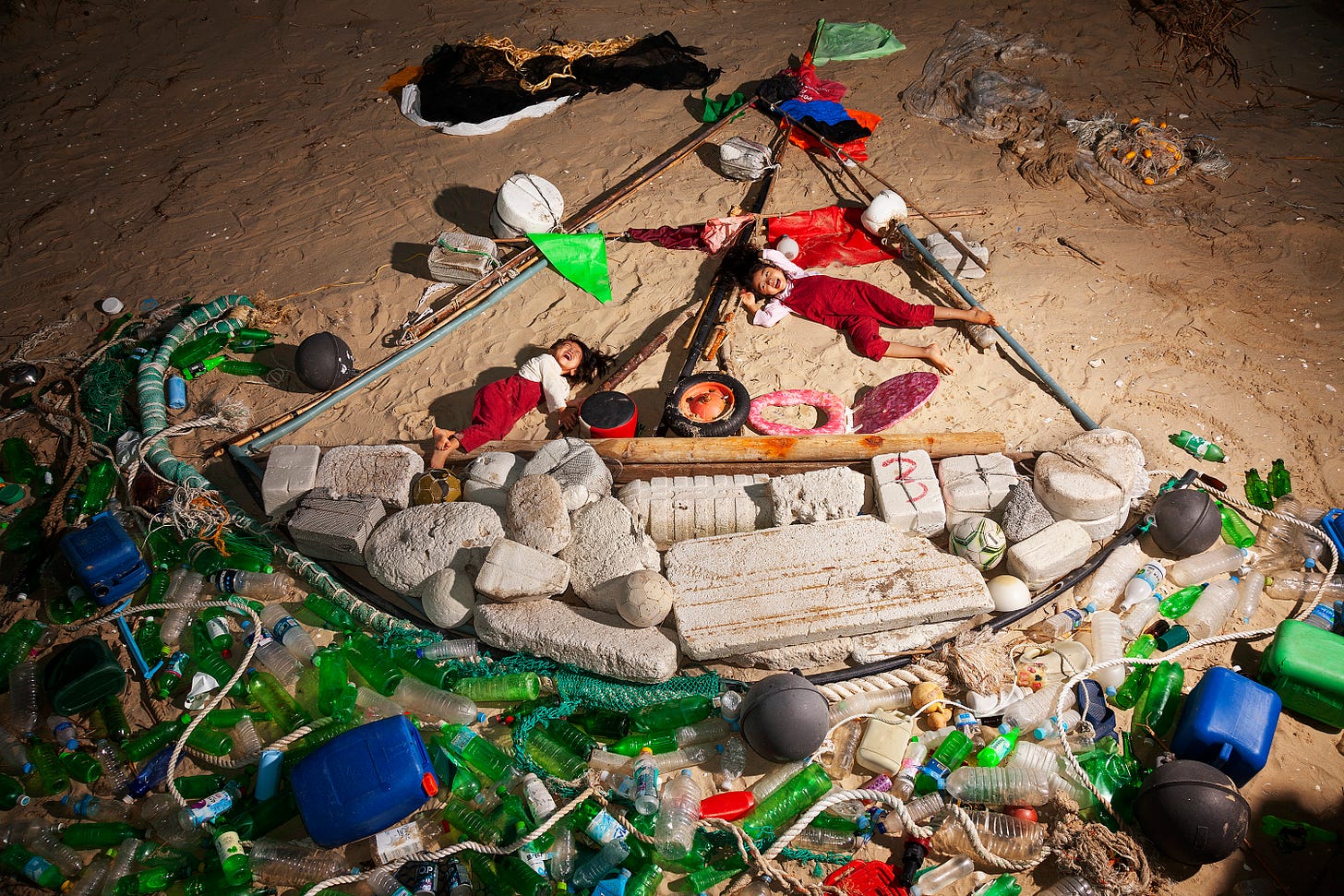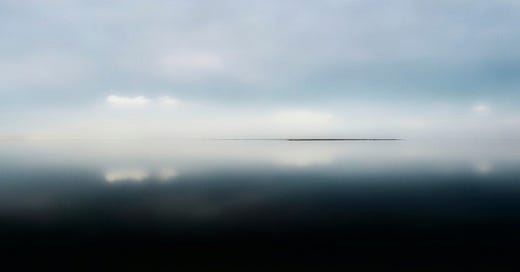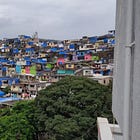On stepping back as a journalist (reprise)
Loss & truth + new opportunities for global journalism 🌐
WorldWise readers—
Today I’m sharing a blog I published on my website in the pre-Substack era, six years ago to the day.
It was born out of professional dilemmas at the time. But it’s really a perennial—similar dilemmas reappear from time to time.
For journalists, some of it may resonate. For those who work with journalists, it may give a flavour of the many, many judgment-calls that go into producing a piece of work.
Anita
MEDIA EDITION | opportunities and support to grow in communication
INSIDER | views & experience
Journalists take a lot of flack, not without good reason.
But it’s also true that their—our—job isn’t easy.
You want to do justice to the things that matter—if only there’s enough time, money, interest, support from editors etc. You know, you’ve heard it all before.
I feel compelled to write about another tough part of the job: stepping back. Impartiality. Balance. Each word speaks to something different but all are connected to the core value of representing the truth and serving the reader.
I found myself tested on this with two stories recently. Very different issues—I won’t go into the detail of it—but both controversial, and both touching on evidence with impact on people’s lives, in different parts of the world.
In both cases, I had a point of view. If that surprises you, it shouldn’t. None of us is without one of those. The trick is what we do with it.
In one case I knew from the outset that I had my point of view, and would need to find a way to do the job without that getting in the way. It was clear I had to go beyond it, for balance.
But that balance is not as straightforward as putting equal weight on both sides, though many journalists and editors often see it as such.
The media treatment of climate change over the years, for example, has taught us that when the consensus expert opinion weighs more heavily on one side, so should your story.
But, deftly—so that the other side isn’t so overpowered that it’s invisible. Maintain a route to checks and balances, always. Because, like with most things in life, what we know is subject to change, flaw, evolution.
I tried to do this by taking an angle that wouldn’t be about weighing up the two sides; also by being explicit about where the weight of evidence lies; and by making a conscious effort to listen differently to the view I disagree with—to search for its validity in the minds of those who hold it.
In doing this I had the support of a solid editor who got our personal views out in the open from the get-go. The final piece didn’t reflect exactly the balance I would have chosen, and it doesn’t reflect my view. It does reflect impartiality.
The challenge of the second story revealed itself in a different way, more quietly. Slowly but surely I became attuned to the fact that I was exposed to a point of view on a contested issue. A view I agreed with; but still, when it comes down to it, one side of the story.
To do my job with integrity, here too there was no other way—but to stop, and step back. Take a look at the other side. Suspend belief. Go against my grain. Risk friendships.
My actions weren’t extraordinary—simply what needs to be done for any story. I made sure to open myself up to other interpretations, probe what I’d heard, reach out to a third source unconnected to the two sides.
It meant enduring discomfort as trust and relationships appeared to get wobbly. I did not know how much of my process others understood, how exactly cultural expectations factored in, if good faith would recover.
When these things matter, you come face to face with what your process as a professional can sometimes cost you as a person.
So yes, it’s not an easy thing to do. But we journalists do it—I think we should do it—to maintain our integrity and that of the profession.
And here’s the thing: it goes beyond simply adhering to a professional code. I’ve re-discovered that it matters to what ends up on the page.
Because in both stories (and in others before them), keeping my mind open to listening to the other side added tiny touches of insight that would otherwise be missing. In the end, this serves everyone better.
It meant I could get into the awkward, messy space between opposite points of view and extract a bit of that gold: a nuance that edges us closer to the truth of a matter.
Or at least, as close as one can get with an imperfect and time-limited chunk of words, readings, conversations.
Still—what a privilege to come with the responsibility.
You’re reading this because I wanted to stop and pay tribute to that part of the process. To unhide it, this time. Maybe you deal with it too; maybe you will deal with me too.
I also wanted to mourn the losses—they weigh heavily at times—that follow from letting go of my point of view at those times when duty calls to something other than my own personal truth.
PS: I’ve resisted the urge to edit—this is a reproduction of the original—but one point to add with the benefit of a few more years on the job: to try and minimise what I’ve called losses, it’s a good idea to signal the process and be as transparent as possible about it with the people we work with as journalists.
OPPORTUNITIES | working with the media
grants+funding
GLOBAL | The Fund for Investigative Journalism is offering grants to US-based reporters to support investigative projects that break new ground and expose wrongdoing in the public and private sectors—closing 29 April.
GLOBAL | The Pulitzer Center is offering a microscale grant to support education, research, or scientific activities for students and educators addressing critical issues confronting our planet's ecosystems and communities—closing 27 May.
fellowships+scholarships
AFRICA | African Liberty seeks candidates for a 12-month fellowship designed to identify an support promising African op-ed writers with training and an opportunity to publish their work—closing 30 April.
GLOBAL | The Pulitzer Center is accepting applications for its Ocean Reporting Network of journalists to report on ocean-related stories around the world, from fishing and extractive industries to systemic threats to coastal communities—closing 26 May.
AFRICA | The Africa Institute is accepting applications for a residency programme for creative writers working on a project related to Africa and the African diaspora—closing 1 June.
training+events
LAC | A training on how to cover a just transition to sustainability is available for journalists from Brazil, Chile and Colombia, one of whom will be selected to report from the COP29 climate change conference—closing 28 April.
LAC | The Knight Center for Journalism in the Americas is offering an online MOOC in Portuguese, “Jornalismo de Soluções: Novas maneiras de produzir suas reportagens e atrair audiências,” on what solutions journalism is and how to use it—closing 29 April.
MENA | The Fulbright Student Scholarship Program is accepting applications from Lebanese journalists and Palestinian residents of Lebanon for a grant to pursue a master’s degree at a university in the United States—closing 2 May.
AFRICA | The Media Foundation for West Africa is offering a four-day in-person training workshop on women’s empowerment and gender-sensitive reporting for female journalists based in Ghana and Cote D’Ivoire—closing 5 May.
LAC | Climate Tracker is calling for applications for its Climate Journalism Mentorship Program from journalists based in Argentina, Brazil and Mexico with a proven interest in environmental issues—closing 9 May.
MENA | The Fulbright Egyptian Student Program is accepting applications for a fully funded master’s degree study in the United States for a maximum of two years—closing 30 May.
awards+competitions
GLOBAL | Professional science and technology journalists from French-speaking countries can apply to Prix Roberval, an international competition that supports the development and dissemination of technological culture in the French language—closing 29 April.
GLOBAL | Experienced science journalists can apply for The Sharon Begley Award, which offers a grant of at least $20,000 to enable the winner to undertake a significant reporting project—closing 30 April.
AFRICA | The Uganda National Journalism Awards are open for applications from journalists working in the country—closing 30 April.
MENA | The Al-Masry Al-Youm Awards competition is accepting applications from young Egyptian journalists who work for a newspaper, news online platform or news agency—closing 30 April.
GLOBAL | Freelance journalists, local reporters and news fixers from around the world are invited to submit entries for the 23rd annual Kurt Schork Awards in International Journalism—closing 31 May.
MENA | The Mohamed Hassanein Heikal Foundation for Arab Journalism is seeking applications from Arab journalists who have published in print or online media—closing 31 May.
LAC | Journalists based in the Americas or Spain can submit their work to the 2024 Excellence in Journalism Award, which recognises work across 16 categories—closing 31 May.
audio+visual
GLOBAL | The Bloomberg Green Docs competition is inviting eligible filmmakers to submit a short climate documentary for a $25,000 grand prize—closing 26 April.
GLOBAL | The 19th edition of the Summer School in Cinema Human Rights and Advocacy is inviting applications from young professionals who wish to broaden their understanding on the connections between human rights, films, digital media and video advocacy, and learn how to use film as a tool for social change—closing 30 April.
GLOBAL | The Visa pour l’Image - Perpignan Festival and Canon are inviting submissions of visual journalism from around the world for a number of competitions—closing April 30 to June 9.
GLOBAL | Francophone college seniors can apply for the Graine de Doc competition to win a grant that supports their first documentary on the topic of borders: territorial, social, identity, virtual, or between generations—closing 12 May.
LAC | Instituto Serrapilheira is inviting applications for training and funding to produce Black-led podcasts in which science plays a central role and focuses on any of these scientific areas: life sciences, geosciences, physics, chemistry, computer science or math—closing 14 May.
GLOBAL | Women Photograph is inviting applications for grants to support new or ongoing photography projects from visual journalists—one of which is earmarked for a nonbinary or transgender photographer—working in a documentary capacity—closing 15 May.
GLOBAL | The Global Peace Photo Award is open for submissions of images that show what peace looks like, with cash prizes totalling €11,000 across six categories—closing 19 May.
pitches+positions
Mongabay is looking for a wire reporter—apply now.
Mongabay is looking for a staff writer for West and Central Africa—apply now.
Unbias the News is inviting pitches for the project Democracy Playbook—closing 1 May.
BBC Media Action is looking for a senior producer for social media in Tanzania—closing 5 May.
Carbon Pulse is looking for an Asia-Pacific Environmental Markets Correspondent, for a home-based/remote working arrangement from a base in Asia or Australia—closing 15 May.
Allison Parshall at Scientific American and is accepting pitches for science stories—pitch now.
Kareem Shaheen at New Lines Magazine is inviting stories on the Mideast region—pitch now.
resources+tools
The power of peer support: helping journalists persevere in the face of online abuse - PEN America
Tipsheet for using ocean data in your investigations – Global Investigative Journalism Network
I used Lore Machine's generative AI to turn my story into a comic—and you can too - MIT Technology Review
Good Conflict Journalism toolkit - Lenfest Institute
Safety of women journalists - IMS
HIGHLIGHT | call for papers
The Africa Policy Research Institute, in partnership with the University of Johannesburg Department of Politics and International Relations, is inviting submissions for thought pieces ahead of the BRICS 2024 Summit. Papers should focus on BRICS-related topics such as member relations, implementation, democracy, elections, global conflicts, digital economy, and many more. Get the details and submit by 31 May.
VIEW | insight & global news
ICYMI—Catch up on the latest VIEW post on the pandemic’s lasting legacy, plus the usual briefing with news from forests to FGM.
HOUSEKEEPING NOTE
Signing up to WorldWise grants access to both VIEW and MEDIA editions automatically, but you can also subscribe or unsubscribe to one specific section—there’s a handy how-to here.
PS. |







A fascinating read - thank you for sharing this, Anita! Would love to dig in this with you a bit more; so many parallels - and differences - with the creative storytelling we support at GHF